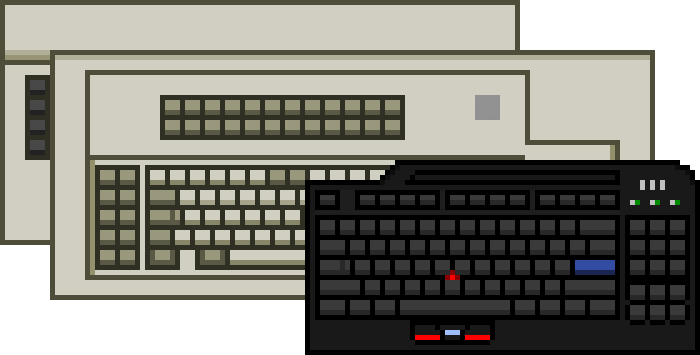P/N 1395664 - Model M122 Type III Keyboard Details & Specs
Provided by the ASK Keyboard Part Number Database
IBM InfoWindow Twinax Display Station Typewriter Keyboard
| Type | Model M/Model 1A Type III 122-key Converged Keyboard |
|---|---|
| Nickname | Battlecruiser |
| Known host systems | IBM 3476 InfoWindow Display Station (IBM 5250 family) IBM 3477 InfoWindow Display Station (IBM 5250 family) IBM 3486 InfoWindow II Display Station (IBM 5250 family) IBM 3487 InfoWindow II Display Station (IBM 5250 family) IBM 3489 InfoWindow II Modular Display Station (IBM 5250 family) |
| OEMs or ODMs | IBM, Lexmark |
| Keyswitches | IBM membrane buckling springs |
| Earliest appearance | |
| Original keycaps | PBT with dye-sublimated legends |
| Cover colour | Pearl White |
| Branding | IBM grey oval badge Or IBM blue oval badge |
| Feet | Single-setting elongated flip-out feet |
| Protocol | IBM Mode 2 (scancode set 3) |
| Connection | Grey coiled-style fixed modular-8P5C ("RJ-45") cable |
| Number of keys | 124 |
| Form factor | 120% |
| Layout & language | 5250: Converged Typewriter Japanese (Katakana) |
| Data last updated |

